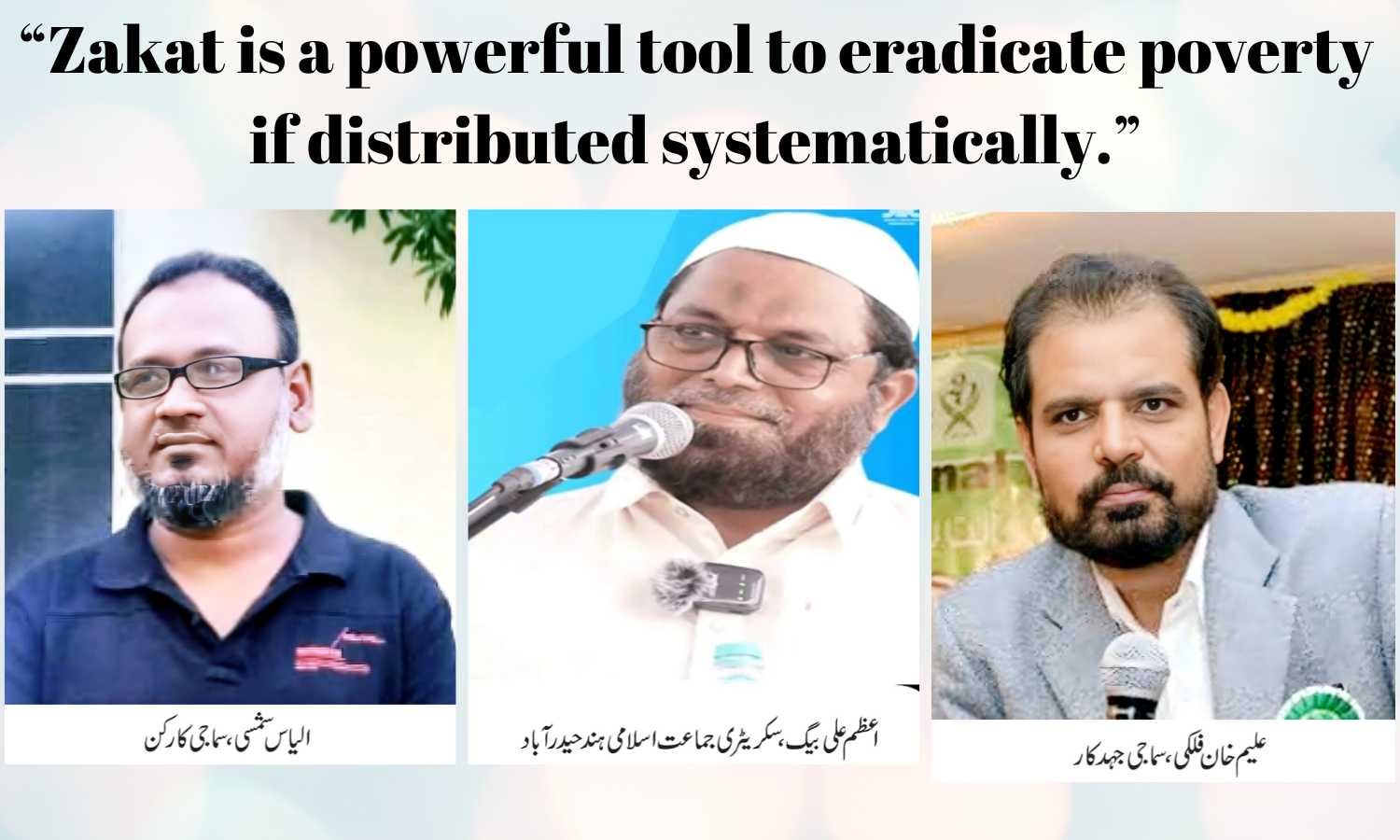- Ramadan, the sacred month of blessings and forgiveness, brings an outpouring of generosity among Muslims. Alongside prayers and fasting, acts of charity reach their peak. The Muslim community in Hyderabad stands out for its exemplary practice of Zakat, ensuring that thousands of underprivileged individuals benefit from this fundamental Islamic duty.
The Obligation of Zakat
Zakat is one of Islam’s five pillars and is obligatory for every Muslim who fulfills certain conditions. It applies to all adult Muslims who possess wealth exceeding the Nisab threshold for a full lunar year. The threshold for Zakat liability includes 87.48 grams of gold or 612.36 grams of silver. The amount due is 2.5% of total wealth, ensuring that economic justice prevails in society.
The Quran (Surah At-Tawbah) specifies eight categories eligible for Zakat, including the poor, the needy, debt-ridden individuals, and those striving in the path of Allah. The correct and systematic distribution of Zakat ensures economic balance and reduces social disparities.
The Generosity of Hyderabad’s Muslim Community
Hyderabad’s Muslim community is widely recognized for its generosity, which reaches its peak during Ramadan. An estimated Rs 2,000 crore is donated through Zakat and other charitable contributions. These funds serve multiple purposes, such as educational aid for underprivileged students, medical assistance, food distribution, and support for the homeless. Additionally, financial help is extended to those burdened with debt and struggling to find employment.
Social Leaders’ Perspectives on Zakat Distribution
Aleem Khan Falaki, Social Activist
Renowned social activist Aleem Khan Falaki emphasizes that Zakat is a powerful tool to eradicate poverty if distributed systematically. However, he criticizes the flawed and often corrupt distribution system in India, which fails to alleviate poverty and instead increases dependence. He highlights the Islamic principle that Zakat should empower recipients to become donors in the future.
Falaki particularly supports the idea of funding madrasa students while warning against using Zakat for extravagant weddings. He points out that many weddings funded by Zakat involve unnecessary expenses on food and lavish ceremonies, defeating the purpose of the charity. He stresses that Zakat should first be given to close relatives before extending aid to others.
Azam Ali Baig, Secretary, Jamaat-e-Islami Hind (Hyderabad)
Azam Ali Baig of Jamaat-e-Islami Hind stresses that Zakat played a key role in eliminating poverty during early Islamic history. He believes the best approach is to consolidate Zakat funds and provide substantial support to a few individuals rather than distributing meager amounts to many. He also advocates for supporting Muslim prisoners struggling to pay bail amounts and those in genuine financial distress.
Baig argues that Zakat should be used to create sustainable economic solutions for recipients so they do not remain dependent every year. According to him, if a family needs ₹20,000 to become self-sufficient, giving them Rs 2,000 each year will not resolve their issue. Instead, Zakat should be utilized to permanently uplift families from financial difficulties.
Ilyas Shamsi, Social Worker
Social worker Ilyas Shamsi criticizes the misuse of Zakat by some organizations under the guise of Bait-ul-Mal (Islamic treasury). He promotes the concept of Direct Zakat Movement, ensuring that donations reach recipients without intermediaries. He strongly opposes wasteful practices in Zakat distribution and encourages direct family assistance to prevent exploitation.
Shamsi argues that many institutions claiming to manage Bait-ul-Mal are actually private setups with little accountability. He condemns the mismanagement of Zakat, where a significant portion is spent on administrative expenses instead of reaching the deserving recipients.
Ramadan Dates Market: Rising Demand and Evolving Consumer Trends
The Social Impact of Zakat
The proper distribution of Zakat brings about significant social transformation:
- Reduction in Poverty: Zakat empowers the financially weak and reduces dependency.
- Economic Balance: Redistribution of wealth prevents economic disparity.
- Social Harmony: Zakat fosters unity and strengthens the bonds of brotherhood.
- Spiritual Growth: It purifies wealth and brings blessings to those who give generously.
The Ramadan Zakat payment tradition in Hyderabad is a shining example of charity and social responsibility. The Rs 2,000 crore+ donations made by the community play a crucial role in uplifting underprivileged sections of society. This act of generosity fosters brotherhood and economic justice, proving that Zakat is not just a duty but a means to create a more balanced and compassionate world. May Allah accept our efforts and bless our wealth. Ameen.











